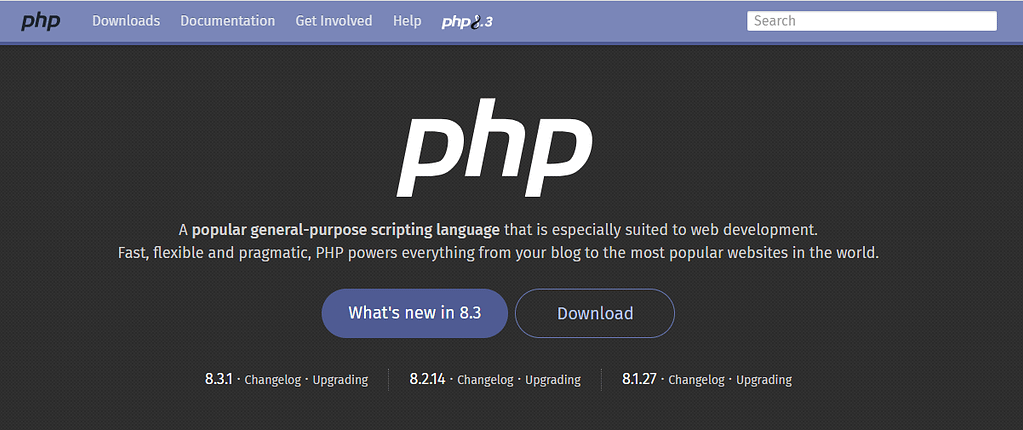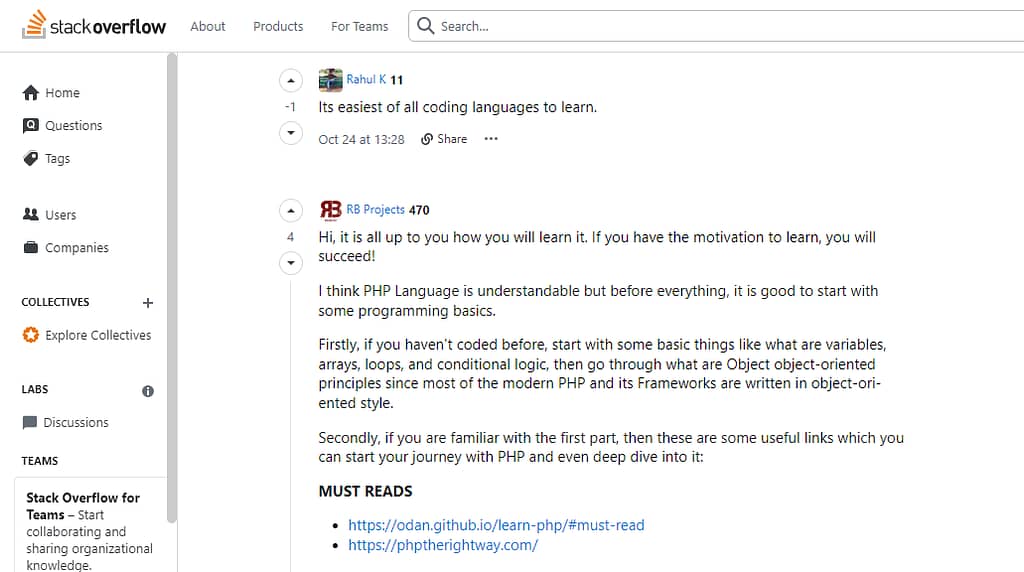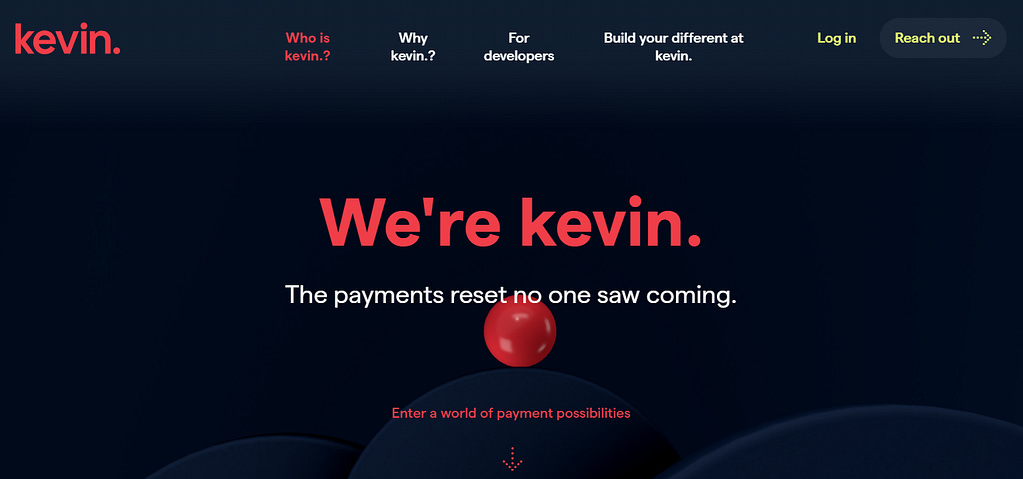Last Updated on 2024-11-24
Explore the ever-evolving landscape of PHP web development by focusing on the latest trends in PHP. Learn about the dynamic innovations shaping the PHP ecosystem and gain critical insights into the most impactful advancements.
What is PHP Programming Language?
PHP is a key player in modern web development, powering countless websites and applications with its versatile server-side scripting capabilities. It is a cornerstone language for developers worldwide, evolving and meeting the demands of dynamic and interactive web experiences.
Let’s further explore the key aspects of PHP’s role in contemporary web development, examining its features, integration within popular frameworks, and contributions to the ever-evolving digital landscape.
The Evolution of PHP Across the Years

Since its inception in 1993, PHP has dramatically evolved. It began as simple scripts written by Rasmus Lerdorf intended to manage his personal website. It had undergone a real transformation in 1997 when Zeev Suraski and Andi Gutmans revamped the parser. This led to the release of PHP 3 in June 1998 and the creation of the pivotal Zend Engine in 1999. Throughout its iterations, PHP has consistently contributed to the web development landscape. Today, it stands as one of the most robust languages for web development.
Why PHP Still Remains a Popular Choice Among Developers

Despite the rise of numerous programming languages, PHP remains a top pick for developers in web development. Here’s why they still gravitate towards PHP:
- Free & Open-Source: Developers love free stuff, and PHP is just that. Its open-source nature means they can tweak it to their heart’s content to fit their projects’ demands.
- Easy to Learn: PHP’s straightforward syntax appeals to beginners. Its vast community and abundant resources make it very approachable for newcomers.
- Security: The language’s modern frameworks incorporate robust security features, which help fortify web applications against common vulnerabilities.
- Performance & Stability: PHP’s speed and reliability have significantly improved over the years, earning it a place in high-traffic websites.
- Support for Other Frameworks: PHP plays well with numerous other frameworks, allowing for flexible and scalable app development.

With these advantages in hand, developers can create sophisticated, secure, and scalable web solutions, including web pages that stand the test of time, making them well-suited for any website development project.
Exploring Real-World Applications of PHP

PHP’s adaptability shines across various web solutions, with php commands helping to prove its suitability for a broad spectrum of online platforms.
E-commerce: PHP excels in creating dynamic online stores with popular tools like WooCommerce for WordPress, Magento, and PrestaShop. These platforms facilitate payment processing, inventory management, and customer interactions, all crucial for a thriving online marketplace.
Content Management Systems (CMS): CMS platforms leverage PHP for their development to offer unparalleled flexibility. WordPress, Drupal, and Joomla testify to PHP’s strong capabilities, allowing users to manage content effortlessly and extend functionalities through plugins and themes.
Social Networking: PHP is also the foundation for powerful social networking sites. Platforms like Facebook have utilized PHP to manage vast amounts of data and user interactions in real time.
Forums and Message Boards: Community-driven sites like phpBB showcase PHP’s efficient handling of user-generated content and communication in forums, offering a robust platform for website information exchange.
Case Studies of Successful PHP Deployments
PHP’s versatility in creating dynamic php pages is showcased in many success stories across various industries. Some case studies demonstrate PHP’s capability to deliver robust web solutions.
- E-commerce Giant: Magento: Built on PHP, Magento powers numerous e-commerce platforms by providing scalability for online stores and is noted for its robust security features and high customizability.

- Popular CMS: WordPress: Powering over 40% of all websites, WordPress showcases PHP’s potential to manage content with ease and flexibility, supporting everything from blogs to fully-fledged business sites.
Magento and WordPress are just a few of the platforms that showcase PHP’s ability to handle heavy traffic while maintaining efficiency and providing seamless user experiences.
Leveraging PHP Frameworks for Robust Web Solutions
Developers regularly use PHP frameworks such as Laravel, Symfony, and CodeIgniter to create efficient and scalable websites. These frameworks provide developers with powerful tools and a structured base, allowing them to fulfill the growing demand for sophisticated web applications.
Let’s further discuss how the strategic use of PHP frameworks improves development. We’ll assess their benefits and important characteristics for creating maintainable and dynamic web applications.
How Laravel Changes the Game for PHP Developers
Laravel revolutionizes PHP development by providing an elegant and expressive syntax that developers adore. With that in mind, Laravel is an excellent choice for web developers looking for a robust, full-stack PHP framework. It’s especially suited for complex enterprise-level projects. Using the echo command becomes a seamless part of the experience, blending effortlessly with the framework’s approach to crafting web applications.
- Beautiful Code: Laravel prides itself on clean, maintainable code, which quickens development time and makes working with PHP a more pleasant experience.
- Rich Features: Its built-in features like Eloquent ORM, Blade templating, and artisan command-line tool dramatically increase productivity and reduce boilerplate code.
Standard PHP Code

Laravel

Laravel’s impact on PHP development is best summarized by its commitment to simplicity and functionality, making it an essential tool for modern web developers.
| Laravel | |
| Features | 1. Improved code organization and readability 2. Faster development cycles wide ecosystem that speeds up app functionalities 3. Strong community support 4. High scalability of applications |
| Benefits | 1. Improved code organization and readability 2. Faster development cycles wide ecosystem that speeds up app functionalities 3. Strong community support 4. High scalability of applications |
| Cons | 1. Learning curve can be steep for beginners 2. Can be overkill for very small or simple projects |
Synergizing Different PHP Frameworks for Custom Needs
Combining various PHP frameworks can enhance web development practices, catering to specific project requirements with a blend of different functionalities. Each framework brings its strengths to the table, allowing developers to synergize them for tailored solutions.
For example, one might use Laravel’s eloquent ORM for database interactions, Symfony’s HTTP foundation for request and response handling, and Yii’s robust security measures.
Key aspects to consider when synergizing frameworks:
- Compatibility: Ensure the components work together seamlessly.
- Performance: Be aware of potential overhead from integrating multiple frameworks.
- Maintenance: Consider the ease of updating and managing the integrated frameworks.
By carefully selecting and combining parts of PHP frameworks, developers can construct a highly customized stack that serves their applications’ unique business logic and scalability needs.
PHP’s Role in Server-Side Scripting and Backend Development
PHP is pivotal in server-side scripting, executing code on the server before delivering processed HTML to the client’s browser. Its dynamic nature facilitates seamless integration with HTML and database communication, enabling developers to craft interactive and personalized web experiences.
Furthermore, PHP plays a key role in backend development because it handles server-side activities, processes data, and interfaces with databases. It lays a solid basis for creating dynamic and scalable web applications. PHP’s simplicity, versatility, and significant community support make it an effective choice, allowing developers to design feature-rich, high-performance backend systems.
PHP and the LAMP Stack: A Match Made in Heaven
The LAMP stack represents a quartet of technologies – Linux, Apache, MySQL, and PHP – that harmonize to provide a sturdy and efficient environment for web applications accessible through a web browser.
Why PHP completes the LAMP stack:
- Seamless Integration: PHP effortlessly merges with Apache and MySQL, thanks to its server-side scripting capabilities, rendering it an essential component of the LAMP stack.
- Flexibility and Ease of Use: The PHP language complements the LAMP environment with its ease of development, simplifying the task of creating complex applications.
Employing PHP and suitable PHP IDEs within the LAMP stack brings the power of a robust, secure, and efficient full-stack development environment to the developer’s toolkit.
Interacting with Databases: PHP’s PDO and MySQLi Extensions
Mastering database interactions, including efficient management of database tables, is essential in web development. PHP provides powerful tools like PHP Data Objects (PDO) and MySQL Improved (MySQLi ) to handle these tasks with finesse.
The PHP Data Objects extension is a database access layer providing a uniform method for working with different database systems, including handling various data types. It supports data-access abstraction, which means you can switch the underlying database without altering application code involving different data types.
Features and Benefits of PDO:
- Supports multiple databases (e.g., MySQL, PostgreSQL)
- Named placeholders for queries, enhancing security
- Exception handling for robust error management
MySQLi: The MySQL Improved extension is designed specifically for databases and offers procedural and object-oriented interfaces.
Features and Benefits of MySQLi:
- Database-specific features like stored procedures and transactions
- Asynchronous queries support
- Enhanced debugging capabilities
You can use these extensions to ensure your database-driven PHP applications’ security, efficiency, and robustness.
Modern Practices in PHP Web Development
PHP continuously adapts to the ever-changing demands of web development, affecting how developers create dynamic online experiences. Let’s find out how it fairs with other popular programming languages.
PHP in the Age of HTML5, CSS3, and JavaScript
With web technologies constantly advancing, using PHP variables has evolved to work seamlessly alongside HTML5, CSS3, and JavaScript, bringing dynamic backend capabilities with efficient data handling to cutting-edge front-end experiences. Revised Passage: With web technologies constantly advancing, using PHP variables has evolved to work seamlessly alongside HTML5, CSS3, and JavaScript, bringing dynamic backend capabilities with efficient data handling to cutting-edge front-end experiences.
- HTML5: PHP generates HTML5 content dynamically, allowing developers to output the latest multimedia elements and semantic content structures.
- CSS3: While PHP doesn’t interact with CSS3 directly, it can serve dynamic stylesheets or inline styles that leverage CSS3’s advanced features for responsive designs.
- JavaScript: PHP often pairs with JavaScript (or frameworks like Vue.js) to facilitate asynchronous data exchanges through AJAX, enhancing user experience with real-time updates without reloading the page.
Professionals can craft responsive, interactive, visually compelling web applications by incorporating PHP and managing PHP files in modern web development stacks. Revised Passage: By incorporating PHP and managing PHP files in modern web development stacks, professionals can craft responsive, interactive, and visually compelling web applications.
Security Enhancements and Best Practices in PHP Coding
Ensuring that PHP applications are secure is critical to modern web development. Adhering to best practices, including proper PHP configuration and applying security enhancements for coding in PHP, is essential in this process.
- Input Validation: Always validate user-provided data to prevent common threats like SQL injection and cross-site scripting (XSS). Use PHP’s filter_var() function for sanitizing input.
- Prepared Statements: Utilize prepared statements with PDO or MySQLi to avoid SQL injection attacks.
- Error Reporting: Turn off error reporting on production servers to prevent exposure of sensitive information, but enable it during development for debugging purposes.
- Data Encryption: Implement proper data encryption with PHP’s built-in functions, such as password_hash(), for securing user passwords.
- Regular Updates: Keep PHP and its libraries up-to-date to protect against vulnerabilities. Patch promptly when security fixes are released.
- Cross-Site Request Forgery (CSRF) Protection: Use anti-CSRF tokens in forms to guard against unwanted actions being performed by authenticated users.
Adhering to these cybersecurity best practices can significantly bolster the resilience of PHP applications against cyber threats.
The Future of PHP in Web Development
It’s important to understand PHP’s role in the future of web development. Let’s study PHP’s evolving role, potential developments, and continuous impact on creating the future web development landscape.
Keeping Up with PHP Releases: Projected Trends and Updates
Staying updated with PHP releases is crucial for maintaining security, performance, and modern application features. PHP’s development is active, with the PHP community consistently working on improvements. Here are some of the emerging PHP development trends:
Projected Trends:
- PHP is used by 76.6% of all the websites whose server-side programming language we know.

- Performance Enhancements: New PHP versions are likely to continue optimizing performance, perhaps implementing JIT (Just in Time) compilation for faster execution.
- Improved Syntax: PHP may introduce more syntactic sugar that further simplifies coding, following the precedent set by features like arrow functions.
- Enhanced Type Systems: PHP could expand its type system, providing stricter typing options to catch more bugs at compile time
Staying informed about PHP’s progression and its evolving php properties ensures that your skills and applications remain current, secure, and efficient. Keep up with PHP updates by subscribing to the following practices:
- Follow the official PHP release calendar for updates.
- Monitor PHP internals’ mailing list for insight into what’s coming.
- Participate in PHP RFCs to understand and potentially influence new features.
PHP’s Place in an Increasingly JavaScript and Python-Dominated Landscape
PHP has an established niche in server-side web development, whereas languages like JavaScript excel as client-side scripting languages complement PHP’s capabilities. Together with Python, each dominates different aspects of programming. Here’s a brief look at their coexistence.
| PHP vs. JavaScript vs. Python | ||
| PHP | JavaScript | Python |
| Stands out in server-side scripting and CMS-driven websites. It’s ideal for shared hosting environments and the rapid development of web applications. | Reigns supreme in front-end development with frameworks like React and Angular, offering full-stack capabilities when combined with Node.js for the server-side. | Gains ground in data science, AI, and machine learning, while its frameworks like Django make it a solid choice for web development. |
With its continuous modernization, strong community, and comprehensive resources like a PHP course, PHP remains a relevant choice for backend language tasks in web-specific areas, even in this diverse landscape.
Navigating Challenges and Solutions in PHP Development
Challenges in PHP development are inevitable, ranging from security problems to optimization complexity. Navigate these roadblocks by acquiring insights into practical solutions to improve the efficiency and resilience of PHP projects.
Overcoming Common Obstacles Faced by PHP Developers
Navigating the challenges in PHP development, including integrating efficient web forms, is part of a developer’s journey toward creating robust web applications. Here are strategies to overcome some common obstacles.
- Outdated Codebases: Regularly refactor and update legacy code to adhere to modern PHP standards. Embracing newer PHP versions can increase security and performance.
- Performance Bottlenecks: Use profiling tools like Xdebug to identify slow points in your code. Leverage PHP’s opcache to optimize scripts on the server.
- Security Risks: Implement comprehensive security practices such as data encryption, secure session handling, and adherence to the latest OWASP recommendations.
- Mixing Business Logic with Presentation: Adhere to the MVC pattern to separate concerns. Framework usage can also encourage clean code architecture.
By systematically tackling issues like managing PHP properties, PHP developers can maintain a high code quality and application functionality standard.
Performance Optimization Tips for PHP-Based Applications
Maximizing the performance of PHP applications is key to ensuring user satisfaction and efficient resource utilization. Here are some tips for optimizing your PHP apps:
- Use the Latest PHP Version: Newer versions have performance optimizations and enhancements.
- Optimize Database Calls: Use indexes properly, minimize queries, and use caching where appropriate.
- Leverage Caching: Implement opcode caching with OPcache and data caching with tools like Redis or Memcached.
- Profile Your Code: Employ profiling tools to pinpoint performance bottlenecks.
- Minimize Use of Loops: Loops can be performance-intensive; optimize or reduce their use wherever possible.
By adopting these strategies, you can reduce load times, conserve server resources, and create a smoother experience for end-users.
Tips on Recruiting PHP Developers
It’s imperative that your PHP developers specialize in the right tech stack for your project. This is why it’s a good idea to partner with expert recruiters to find the right candidates for the job. Full Scale specializes in connecting you with top-tier professionals who are specifically matched to your requirements.
The current IT landscape makes finding and retaining professionals difficult. Finding qualified experts is challenging, with a scarcity of IT talent and competitive hiring rivalry among businesses. This is why Full Scale is committed to closing this gap by linking you with highly experienced technical professionals.
Our advanced screening system streamlines the hiring process. We’ll take care of all the hassles involved in recruitment. Let us assist you in building your team by providing easy access to the best prospects on the market.
Build Your Software Development Team Today!
FAQs on PHP in Practice
Is PHP Still Relevant for New Projects in 2024?
Yes, PHP is still relevant for new projects in 2024. Its continual updates, a large ecosystem of frameworks, robust community support, and widespread global server deployment ensure its viability for web development endeavors, particularly for content-heavy sites and web applications.
What Are the Best PHP Frameworks for Beginners and Experts Alike?
For beginners, CodeIgniter is often recommended for its simplicity and ease of learning, while Laravel is known for its elegant syntax and robust features, making it a favorite among experts and intermediates for complex applications.

Matt Watson is a serial tech entrepreneur who has started four companies and had a nine-figure exit. He was the founder and CTO of VinSolutions, the #1 CRM software used in today’s automotive industry. He has over twenty years of experience working as a tech CTO and building cutting-edge SaaS solutions.
As the CEO of Full Scale, he has helped over 100 tech companies build their software services and development teams. Full Scale specializes in helping tech companies grow by augmenting their in-house teams with software development talent from the Philippines.
Matt hosts Startup Hustle, a top podcast about entrepreneurship with over 6 million downloads. He has a wealth of knowledge about startups and business from his personal experience and from interviewing hundreds of other entrepreneurs.





